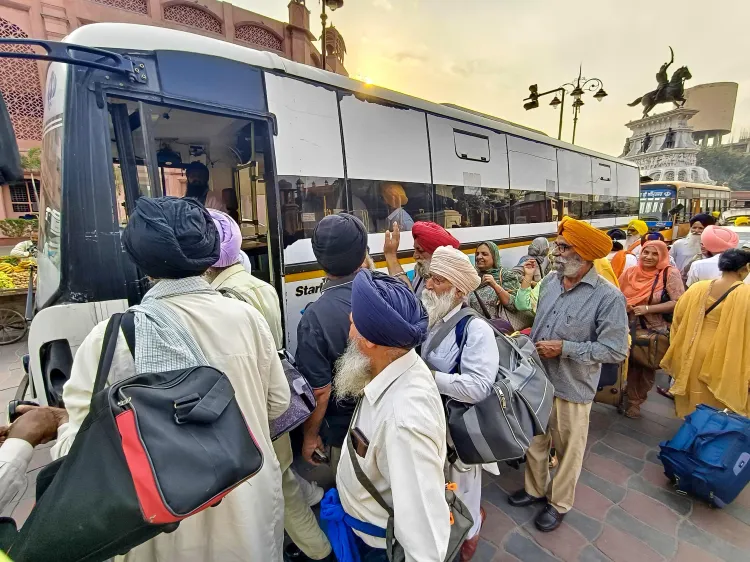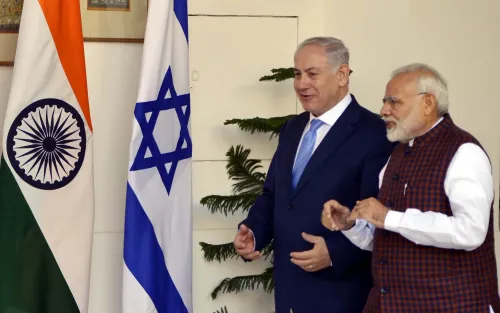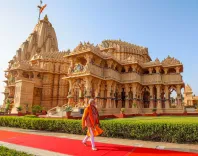Is Pakistan Using Khalistani Elements to Create a Rift Between Hindus and Sikhs?

Synopsis
Key Takeaways
- Pakistan's support for Khalistani elements is aimed at creating religious discord.
- Recent incidents highlight discrimination against Hindu pilgrims.
- The Shimla Agreement facilitates annual pilgrimages to sacred sites.
- Religious tensions can have broader implications for national relations.
- The actions of Pakistani authorities raise questions about their true intentions.
Islamabad, Nov 15 (NationPress) Pakistan is actively stoking tensions between Hindus and Sikhs in India by leveraging Khalistani elements via its intelligence services to advance its agenda, a recent report indicated on Saturday.
The report elaborated that while Pakistan portrays itself as a “friend and supporter” of Sikhs, it simultaneously finances and supports Khalistani separatists to undertake actions that tarnish the global image of Sikhs.
As highlighted in a report by Khalsa Vox, Pakistan has once again made its intentions clear by humiliating and sending back Hindu pilgrims who had journeyed to Nankana Sahib in Punjab for the celebrations of Guru Nanak Dev’s birth anniversary.
In a recent event, approximately 14 Hindu devotees — including eight from Delhi and others from Lucknow — who were part of a group traveling to Nankana Sahib for the religious festivities, were insulted and turned away by Pakistani officials.
The Hindu pilgrims reported that Pakistani authorities barred them from boarding the bus to Nankana Sahib, stating, “You are Hindus. You cannot go with the Sikh group,” and forced them to walk back towards the Indian border.
Observers have raised questions about Pakistan’s motives, pondering: if the Pakistani authorities had such a problem with Hindus, why were they granted visas initially? It seems the entire intent was to demean them—first by issuing visas and allowing them entry into Pakistan, then by publicly shaming and expelling them.
Indian officials condemned the incident, labeling it a “shocking and unprecedented act of discrimination.”
The report emphasized that these Hindu families, who were once residents of Pakistan, migrated to India in 1999 due to fears of persecution from Islamic extremists and subsequently obtained Indian citizenship in 2008.
Under the Shimla Agreement between India and Pakistan, groups of Indian pilgrims travel each year to Nankana Sahib to commemorate Guru Nanak Dev’s “Prakash Parv.” Many Hindu families participate in the pilgrimage out of reverence for Guru Nanak Dev and a wish to visit the sacred site of his birth.
By segregating the Hindu pilgrims from the group and sending them back in such a demeaning manner, Pakistan has not only insulted their faith but also disrespected the entire nation of India. This incident once again illustrates that Pakistan remains committed to its divisive tactics, seeking every opportunity to sow discord among Indians.










